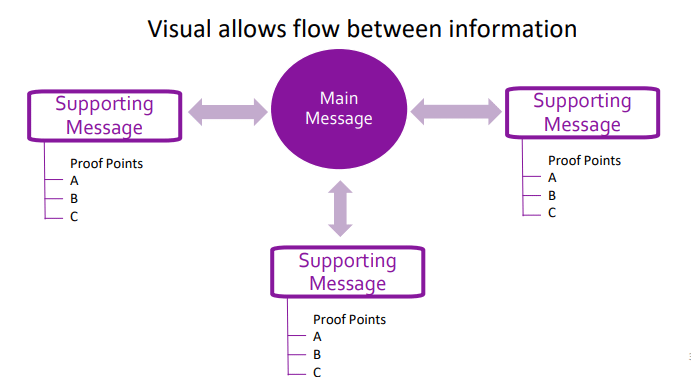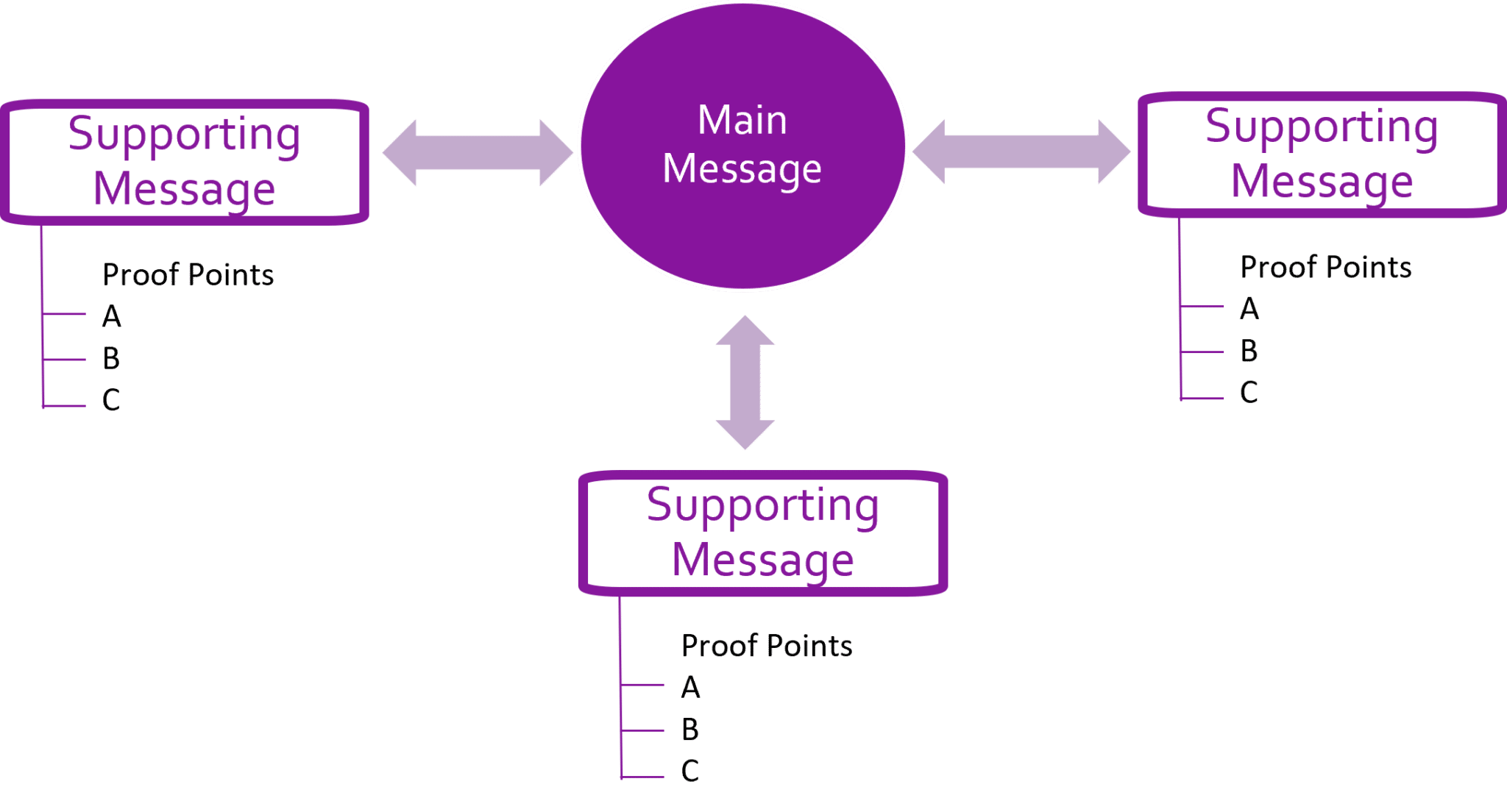What is it?
- A visual way to organize your most important messages
- It helps you prioritize what you want your audience to hear
- It ensures consistency in how everyone speaks and writes about your brand
- Only use a few - a primary and for initiatives, major news or a crisis
What does it include?
Key messages include bite-sized information.
- 1 Main Message
- 3 Supporting Messages
- Proof Points for each Supporting Message

Main Message
The main idea you want your audience to hear, understand, and remember.
- What's the ONE thing you want people to hear and remember?
- It's like a thesis statement in an essay
- If asked a question, what would you want a speaker to get across?
- We often use the "Promise" from the Brand Strategy
Supporting Messages
Points that make the main message more clear.
- It's like the supporting messages for a thesis in an essay
- Should summarize several detailed Proof Points
- Limited to 3
- We often use the "Secret Sauce" from the Brand Strategy
Proof Points
Specific reasons to believe each Supporting Message.
- What are the reasons for a person to believe each Supporting Message?
- Provide facts/proof with why the Supporting Message is true (often numbers-based)
- Proof Points are a way to get to the Supporting Messages and ultimately the Main Message
- When asked a question, sometimes a speaker starts with a Proof Point
Good Key Messages:
- Align with overall business strategy
- Unique, accurate and verifiable
- Concise (you only have one page for a reason)
- Easy to understand and easy to restate (no corporate jargon)
- Relevant to specific audiences

